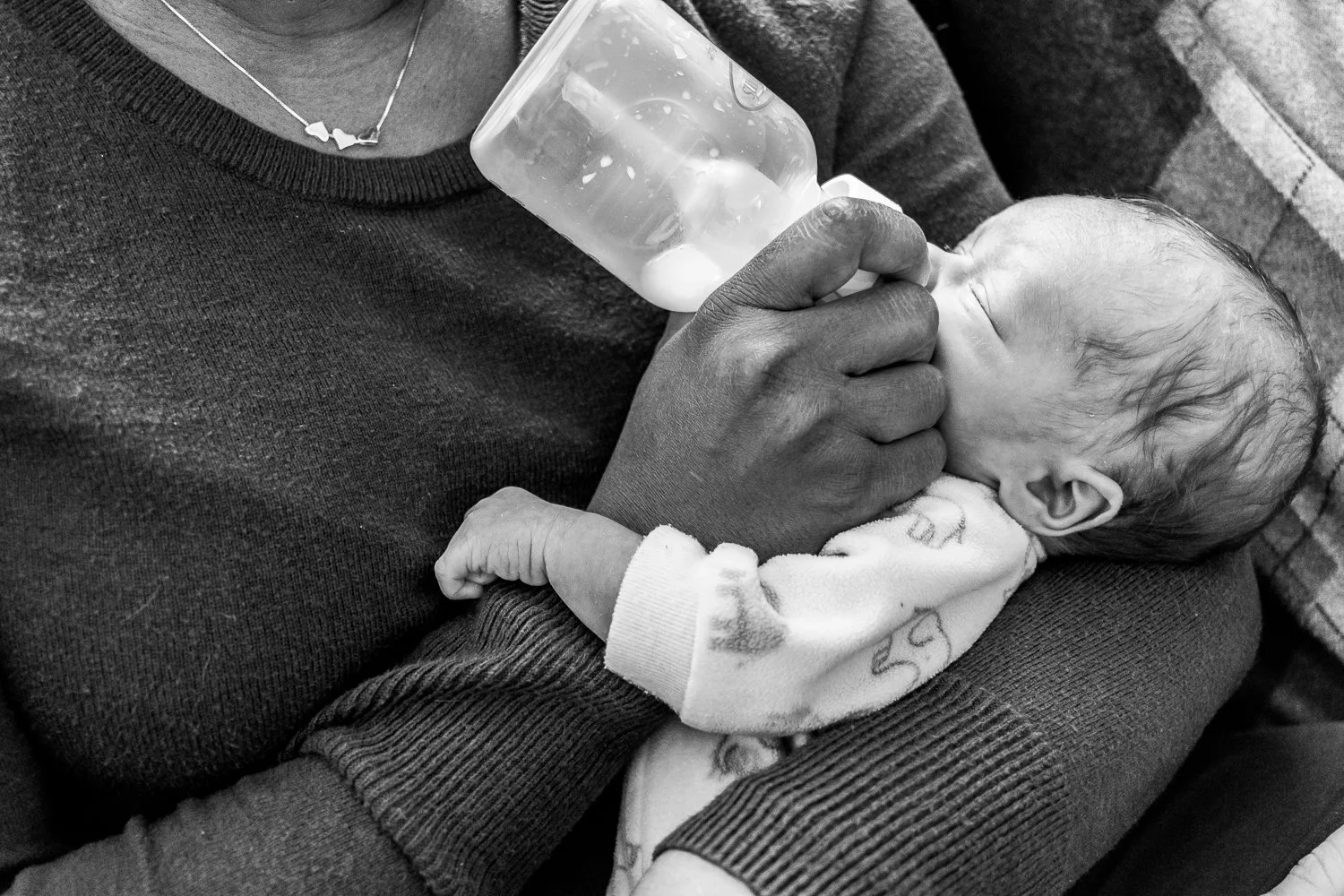5 Questions to Ask HR About Parental Leave in Central Virginia
This is part 4 of my 5 Questions to Ask series, where I go through various topics related to pregnancy, babies, and the transition to parenthood, and give first-timers a list of questions you can ask the experts as you go through the various stages and prepare to welcome a baby into your life. Because you don’t know what you don’t know, and don’t know what to ask if you don’t know what you don’t know. You can read the earlier topics on breastfeeding, newborn photography, and general pregnancy here.
2025 Update: I’m narrowing the focus on this and bringing in some expert help for this post, because it continues to get a lot of attention and I want to make sure I’m bringing accurate and true information. This is specifically for expecting parents in Central Virginia, since this is where I live and work and have experience. If you live outside this area, the questions might help you but it’s important to check your own state, federal, and employer regulations about leave.
If there’s one thing we can agree on when it comes to parental leave, it’s that it’s universally unfairly short in the United States. Whether you work for a large organization like the Commonwealth of Virginia, or local government (hello Chesterfield County teachers), a large private employer or a small mom and pop spot in Richmond, the amount of leave parents receive in the US is not guaranteed by federal law. That leaves us with a hodgepodge of laws, qualifications, and a whole list of systems to navigate that are confusing - and sometimes misleading - as you prepare for a new baby.
I’ve put together a list of questions, with suggestions from some Central Virginia HR department websites, to help you get started. Ask all the questions, advocate for yourself, and take care of yourself and your family. Let’s get started:
1) Paid and unpaid leave.
Questions to ask:
How much paid leave am I entitled to?
How much of my leave will be unpaid?
Do I have to use my own banked leave, or is there a separate parental leave plan with included leave, so I can keep my vacation and sick time?
Is there a shared bank of leave that I can borrow or take from if needed?
Don’t go purely on colleagues’ experiences on this. At my old job at VCU, there were several different tiers of leave, based on longevity and employee type. The leave policy at VCU also changed significantly between my first birth and my second, so even if you’ve navigated the system before, it’s good to get a refresher on the current policies.
Knowing if you have to use your own sick and vacation time, vs having a “parental leave” system (like VCU’s) will be helpful as you plan. Pro tip: if you have a set amount of leave for the year, make sure you leave enough time for planned and unplanned doctors’ visits after the baby is born. Particularly if you’ll be using group childcare after you return to work, where your baby will be exposed to all the lovely germs this world has to offer.
Your partner should check on this for themselves, so they can participate in caring for the baby. If you work in the same organization, there might be specific rules about how much time they can take as the “second parent.” VCU, for example, gives the second parent 6 weeks of leave, while UR gives both parents 8 weeks of leave combined if they both work for the university. (On a related note: boooooooooooooooooooooo UR. Do better.)
The question about the shared bank of leave is a good one to ask, because it’s rarely advertised. If you ask ahead, you can put it in your back pocket (or not) and know what has to happen to activate it.
If you have no paid leave, and you work for a company with at least 50 employees, the Family and Medical Leave Act (FMLA) requires your employer to grant you job-protected, unpaid leave. You are responsible for filling out that form with your employer (the law firm of Pierce Jewett has an office in Richmond and put together a walk-through of this here, which is a helpful explainer if you’ve never dealt with FMLA before).
2) Baby timing.
Questions to ask:
How is leave triggered?
Is it automatically triggered based on the baby’s due date or do I need to report my baby’s birth in order to trigger it?
What is required for reporting?
What happens if my baby comes early?
What happens if they come REALLY early?
What happens if they come late or on time, but I can’t work leading up to the delivery?
Babies come when they’re ready. Sometimes that means they come early. Sometimes VERY early (I see you, NICU parents). Sometimes they come “on time” or late, but your body may be unable to do both the baby growing and also the job you’re paid to do, and you have to be out of work earlier than you planned. What happens with your leave at that point? Ask. Ask all those sub questions.
3) Transition (sung to the tune of “Tradition” from Fiddler on the Roof).
Questions to ask:
Who is responsible for my job duties while I’m gone?
What is the transition plan for when I go out and when I return?
Who is responsible for putting this plan together?
Ask all these questions. But I hate to tell you, the person responsible for putting together the plan for work to carry on while you’re gone is probably you. Consider it good practice for parenthood, where you’ll be responsible for planning for other people for the next 18ish years. But it’s also something that can take a good amount of time to put together, so make sure you ask with lots of time left to accomplish it. (Also, if the person putting together the plan is not you, you probably definitely want some say in that plan.)
Some tips for what to include in your plan, if you have the freedom to do so:
The plan for who will do what parts of your job while you’re gone (don’t put your entire job on one person - they have their own job to do as well)
The resources those people will need to be successful at your job (it will make them appreciate you far more to know the nuance that goes into your position)
The plan for you to transition back into your role at the end of your leave, taking into account any annual cycles and projects that will need to be done or put on hold
Bank in time to take it slow when you get back. You will be sleep deprived and will be completely out of rhythm when you return. Schedule meetings with each person taking part of your job, and don’t take back that part of the job until you’ve had the meeting to get you reacclimated.
Don’t include yourself in your out plan. For example, don’t say “Allison will continue to check emails while out on leave.” Because you can’t, and you won’t, and a lot of times, it’s actually against the rules for you to work while out on documented leave. (FMLA has real boundaries.) If it’s a part of your job that has to be done, it needs to be assigned to someone else in the interim.
Don’t expect to hit the ground running. Give yourself some grace for the emotions that will accompany you back to work. And the emails. There will be a lot of emails.
4) Return to work accommodations.
Questions to ask:
If I plan to breastfeed, and need to pump every 3 hours, where will I do this?
How do I request a private space and storage facilities for milk (as required by VA law), and/or accommodations to my schedule?
The world of breastfeeding is fraught. The world of pumping at work is the absolute worst. (Please raise your hand if you ever pumped in a literal broom closet beside industrial cleaners during your lunch break - *raises hand*.) Even the most accommodating supervisors have a limit to what they can (or have to) provide, and “time” is something you’re going to have to find yourself, a lot of times. It’s a real, stressful part of returning to work. Not to mention the stress of what happens if you miss a pump and don’t have enough for your baby for tomorrow. Or what happens to your body if you miss a pump. It is doable, though, in a lot of cases. You will need to advocate for yourself and practice holding boundaries (“sorry, I have a hard stop at 3pm” “No, I cannot move my pump session to accommodate that meeting.”). You can do it.
5) Other questions to ask.
Questions to ask that feel random, but are related:
[If you have health insurance through your employer]: Will my leave from work affect my health insurance coverage?
[If your baby will have health insurance through your employer]: What is the timeline for me to add my baby to my plan? How do I do this, what paperwork is required?
How are holidays paid/not paid [winter/spring/summer break, for teachers and higher ed folks specifically]?
How are annual reviews, bonuses, and raises handled while I’m out?
[If leave is shorter than you want it to be or is unpaid when you need to be paid]: Are there opportunities to come back to work part-time for a few weeks, or to work from home as I transition back to work?
Bonus question:
How is it possible that an entire workforce of child-bearing-age adults just accept the parental leave policies for what they are, and don’t completely revolt out of sleep-deprived rage?
You may not want to ask this. Or maybe you do. Maybe there’s a secret society at your place of employment that is ready to walk out in protest, and they just need you to help hold the banner.
I hope this helps you, as you plan and navigate the world that is Parental Leave and all the hazards that go with it. Next up on my virtual soapbox: lack of flexibility in work as a whole, and childcare. That’s a whole year’s worth of blog posts, I think.
Click below to read up on the other topics in this series:
5 Questions to Ask When You’re Pregnant








